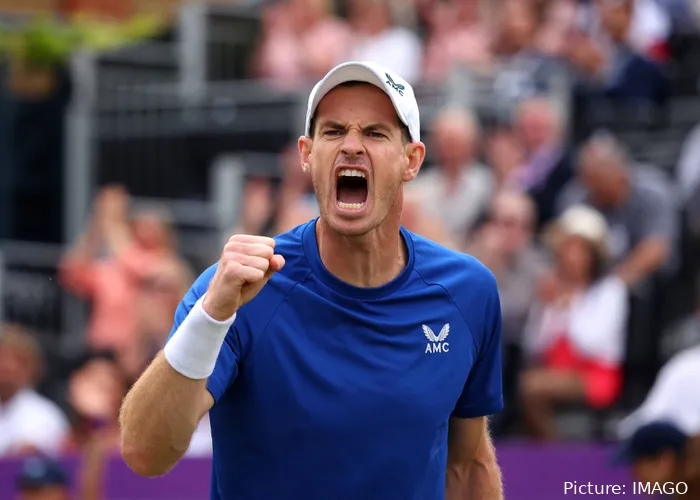
Rennae Stubbs, former coach of tennis icon Serena Williams, recently shared her thoughts on why Andy Murray should consider a return to the tennis circuit in a coaching role. Stubbs, known for her strategic insight and storied career in tennis, has coached and worked alongside many top-tier athletes. She believes that Murray’s deep understanding of the game, combined with his experience and emotional intelligence, would make him an invaluable asset as a coach, particularly for young talents navigating the often-grueling professional tour.
In her podcast, Stubbs emphasized that Murray’s unique perspective and empathy make him an ideal candidate for a coaching role, regardless of whether he’s coaching male or female players. “Andy Murray would be great coaching anyone,” Stubbs shared. “This guy knows tennis like the back of his hand, he knows the game’s mental and physical demands. He was a very emotional player and would be incredibly empathetic to players going through tough times on the tour.” Her comments highlight Murray’s reputation as a thoughtful, perceptive player whose dedication to the game is evident both on and off the court.
Murray, widely regarded as one of the most successful British tennis players in history, announced his retirement from professional singles tennis earlier this year after a remarkable career punctuated by three Grand Slam titles, two Olympic gold medals, and a year-end No. 1 ATP ranking in 2016. His career was marked by fierce determination and resilience, especially in the face of recurring injuries. Originally planning to retire after the 2024 Wimbledon Championships, Murray’s farewell was expedited by health challenges. A severe back injury during the Queen’s Championship left him unable to compete at full capacity in singles, leading to his ultimate decision to step away from singles competition after a last appearance at the Paris Olympics.
This was not the first time Murray’s career was jeopardized by injury. In 2018, he made headlines when he announced an early retirement due to a severe hip injury after the Australian Open. Following hip resurfacing surgery, he embarked on a remarkable comeback, surprising fans and tennis insiders alike by returning to top-level competition despite the challenges of his physical condition. For years, Murray managed to push through intense pain and extensive recovery regimens to rejoin the ATP tour, a testament to his love for the game and determination to defy the odds.
His decision to focus on doubles after 2018 was another unexpected turn in his journey, demonstrating his adaptability and drive to remain in the sport he loves, even if it meant reinventing himself as a doubles specialist. At the 2024 Paris Olympics, Murray partnered with fellow Briton Dan Evans in doubles, hoping to capture one last victory on the Olympic stage. The pair faced off against American players Taylor Fritz and Tommy Paul in the quarterfinals, ultimately losing in straight sets, 6-2, 6-4. Despite the loss, Murray’s tenacity and commitment to representing his country in Paris left an indelible mark on fans and solidified his legacy as a true ambassador for British tennis.
In addition to the doubles match, Murray was slated to participate in the mixed doubles category with compatriot Emma Raducanu. However, Raducanu was forced to withdraw due to a wrist injury, and Murray’s plans were cut short. This echoed earlier frustrations in his career, as injuries to himself and others have disrupted his ambitions and left him sidelined on numerous occasions. His mixed doubles pairing with Raducanu had been highly anticipated, given her promising talent and his veteran expertise. Their withdrawal left fans wondering what might have been, yet it underscored the toll that physical challenges have taken on Murray’s career.
Given these setbacks and the reality of competing at a high level while managing recurring injuries, many, including Stubbs, believe that a coaching role would be a natural next step for Murray. His rich knowledge of the sport, gleaned from years spent competing at the top of the ATP circuit and facing tennis’s fiercest opponents, could offer invaluable insights to emerging players. Stubbs also pointed out that Murray’s empathy as a coach would be particularly powerful, given the emotional struggles he faced throughout his career. She emphasized that his understanding of both physical and psychological resilience would be instrumental in guiding players through the mental highs and lows of the tour.
Murray has yet to announce any definitive plans regarding a transition to coaching, but his legacy as a player has already influenced a generation of British and international players. His success, particularly as the first British male player to win a Wimbledon singles title in over 70 years, inspired countless young athletes in the UK and around the world. If he were to take on a coaching role, he could contribute further to the sport by mentoring future champions, sharing his on-court expertise and the mental toughness that defined his career.
There’s no doubt that a coach like Murray would bring a level of insight and grit that is rare in the sport. Stubbs’ endorsement has sparked a broader conversation about the potential impact of players-turned-coaches like Murray, especially in an era where emotional intelligence and understanding of mental health have become increasingly vital in elite sports. For fans and players alike, the prospect of seeing Murray courtside as a coach offers a new chapter for one of Britain’s most beloved athletes, whose journey through tennis has been as inspiring as it has been challenging. Should he choose to transition into coaching, Murray’s contributions could resonate across generations, bridging the gap between the sport’s past and its future.
Leave a Reply